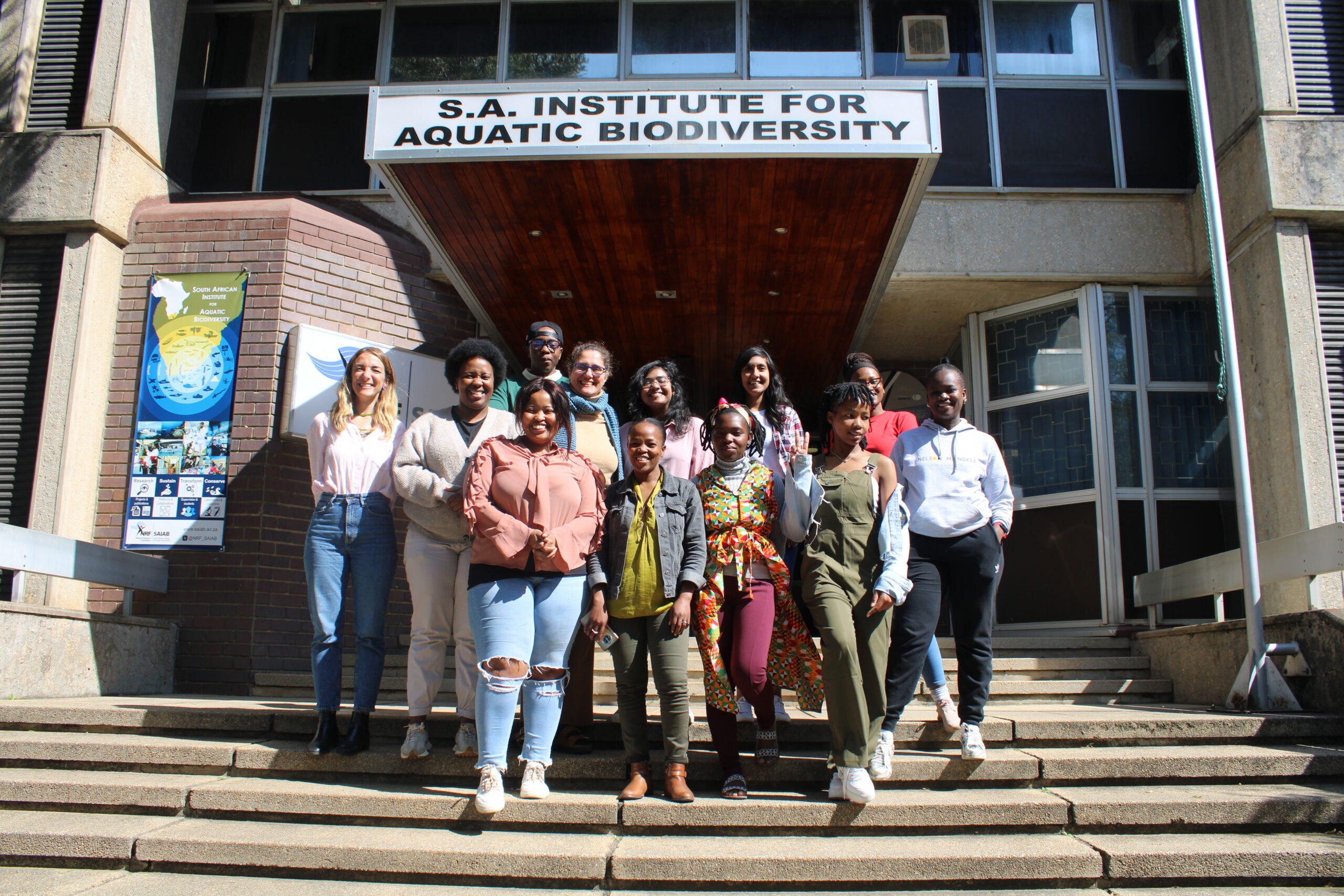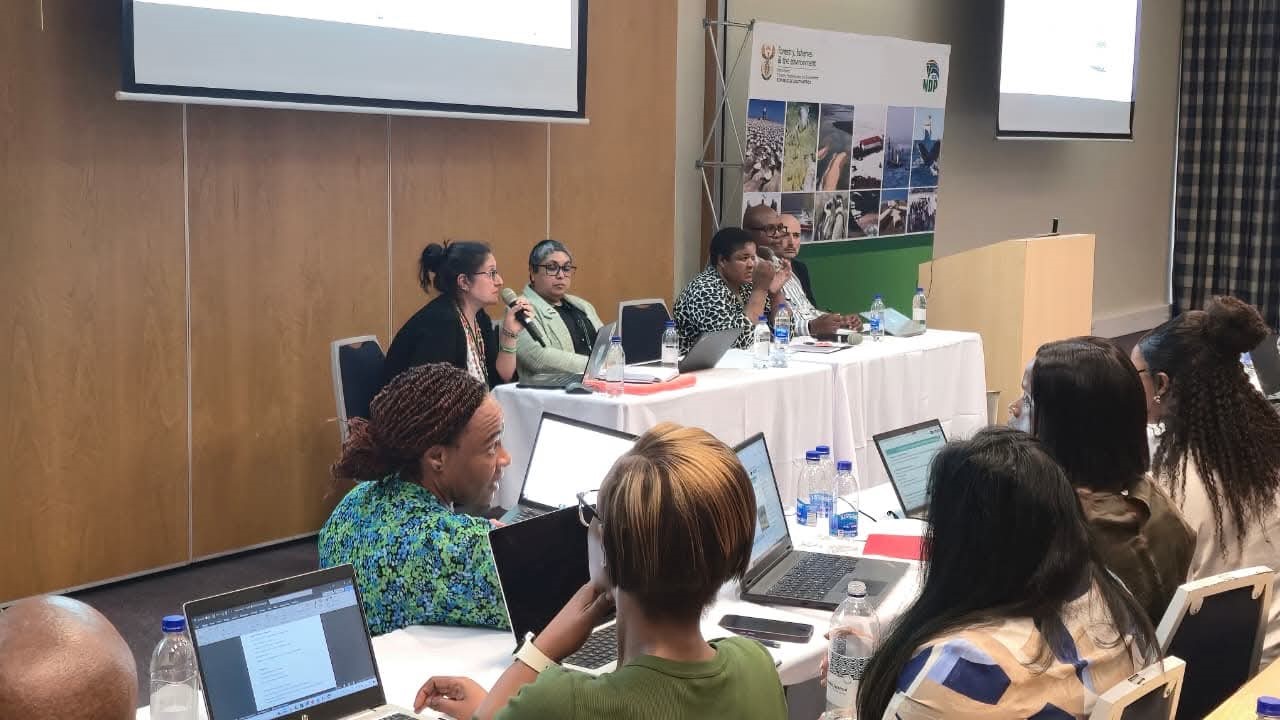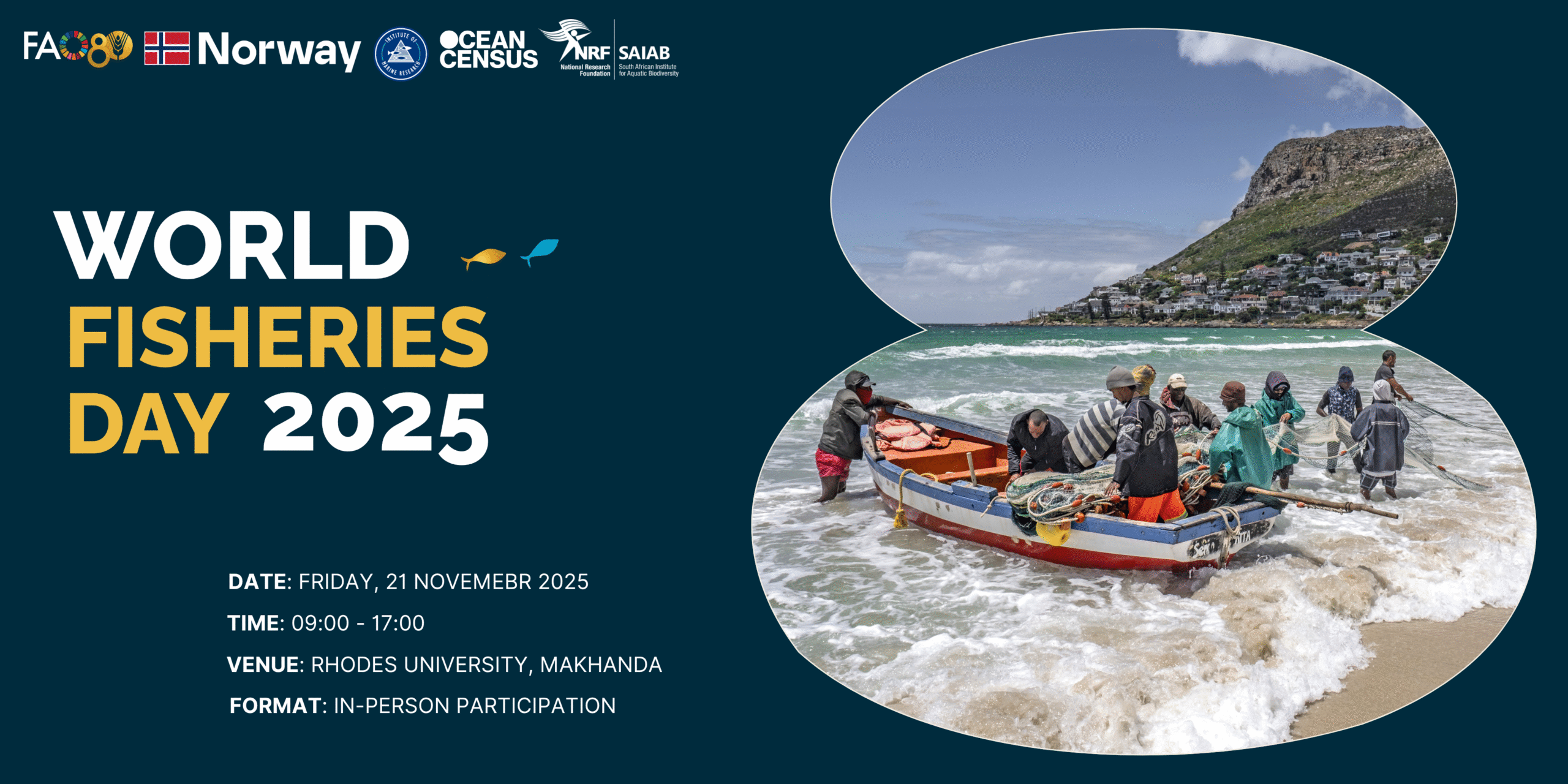The NRF-SAIAB recently held a training course titled “Best Practices in Aquatic Food Web Investigations: Stable Isotope and Fatty Acid Approaches.” The course was designed to equip participants with critical skills in defining sampling designs for food web studies, deciding when and how to use stable isotope versus fatty acid approaches, and preparing samples for analysis.
The training course was sponsored by the Scientific Committee on Oceanic Research (SCOR) who provided travel support to the international expert, Dr Eleonora Puccinelli from the Royal Netherlands Institute for Sea Research (NIOZ). The training was also facilitated by NRF-SAIAB researchers and scientists Dr. Nokubonga Mbandzi Phorego, Dr. Lubabalo Mofu, Prof. Francesca Porri. The course brought together postgraduate students, early-career researchers, and technical staff for an engaging learning experience.
The facilitators explained the significance of stable isotopes and fatty acids as biomarkers in aquatic systems. Francesca explained that, “Stable isotopes help us understand the diet of organisms over time, offering more integrated information than traditional gut content analysis, which only provides a snapshot.” Eleonora elaborated on the complementary nature of these tools in food web ecology, stating that, “Stable isotopes and fatty acid approaches allow us to track energy transfer through food chains, providing insights into the sources used by different organisms at various levels of trophic webs.”
Francesca emphasised the importance of solid experimental design in food web studies. “We took participants from the theoretical foundations of food webs to the practicalities of planning research, including fieldwork. A strong experimental design is essential for the success of any study, in trophic ecology too, because without it, sampling efforts and the entire study can be flawed from the beginning.”
Nokubonga highlighted the course’s focus on hands-on learning, stating, “This training equipped participants with best practices in sampling design. They were exposed not only to fieldwork, but also to laboratory work, ensuring participants understood every step from data collection to analysis.”
The course also provided participants with the opportunity to gain practical field experience. “Students had to plan and execute a study, which included field trips to both freshwater and marine systems,” said Francesca. “Given the key link to aquatic research within the institute, it was crucial to extend the research and practical components to both environments.”
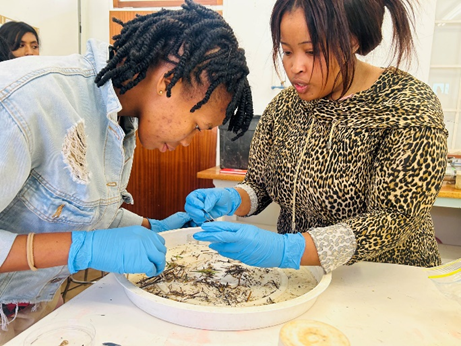
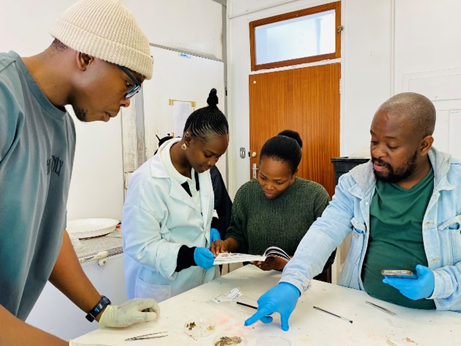
Course participants prepping samples for stable isotope analysis under the guidance of Drs Lubabalo Mofu and Nokubonga Mbandzi-Phorego.
Lubabalo, who facilitated the freshwater sampling, said the objectives of this fieldtrip was to allow participants to gather an idea of how freshwater systems function from a trophic point of view, “we showed participants the equipment that is used to collect samples for stable isotope analysis and the difference in freshwater systems”. He added that the learnt skills will enable the participants to understand energy flows within a freshwater ecosystem.
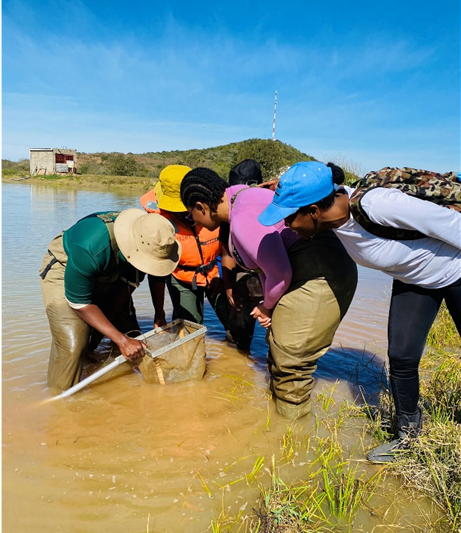
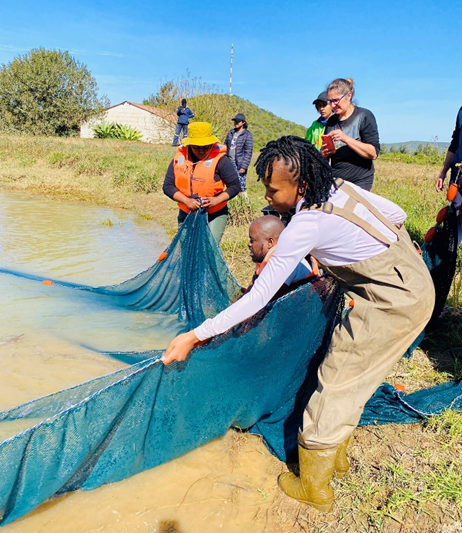
Course participants learning sampling techniques by using a seine net in freshwater aquatic trophic ecology research.
During the marine fieldwork on the rocky shore of Kenton-on-sea, participants had the chance to explore a rocky shore during low tide, observe the kind of species that inhabits the areas, potential differences in communities between wave exposed and more protected areas, and how different marine species are collected for food web investigations.
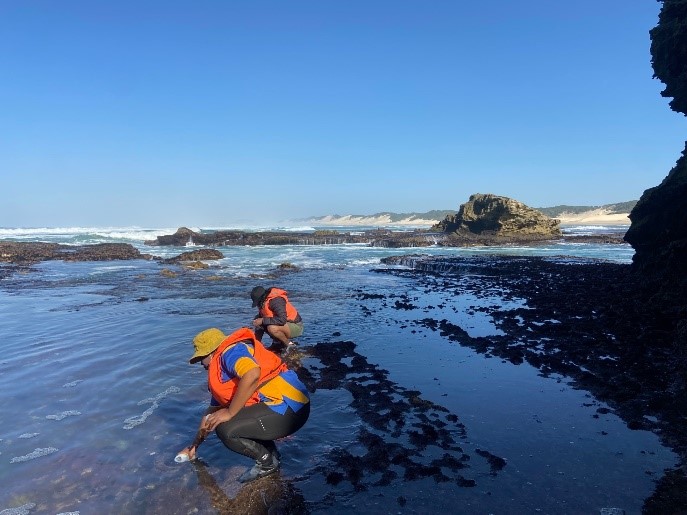
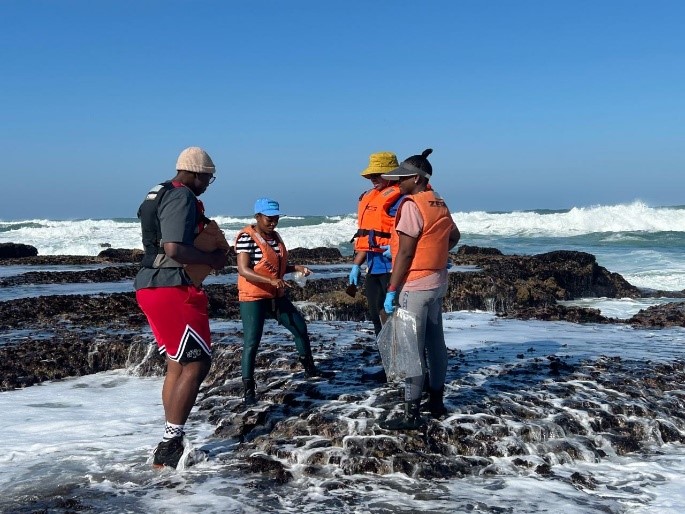
Course participants during the rocky shore sampling in Kenton-on-Sea
The facilitators hope that the skills learnt during the course will be applied in the participants’ own research projects. Nokubonga added, “The goal is for them to be fully equipped with the skills necessary to plan, collect, process, and analyse samples, particularly in the context of stable isotope and fatty acid analysis.”
The skills acquired during this course are expected to have a lasting impact on the participants’ future research. “We hope that the students will carry these skills with them into their fieldwork, and that they will remember the techniques and methodologies learnt,” said Nokubonga. Francesca echoed this sentiment, expressing hope for the long-term benefits of the course. “Many of the participants are MSc students, we hope this course inspires them to further their research and contribute to critical fields, including food security, which is especially relevant in South Africa.” Eleonora added, “In general, I hope the participants will be able to formulate their own research questions and advance the field of food web ecology. This is crucial for understanding food quality and quantity, and ultimately for addressing larger issues including food security.”
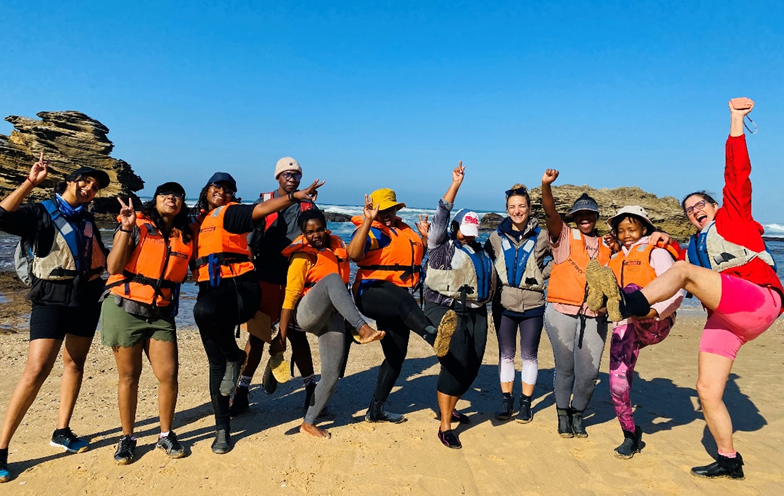
Course participants excited after a successful sampling trip on wave-dynamic rocky shores in Kenton-on-Sea
The skills and knowledge imparted through this course will undoubtedly enhance the participants’ research capabilities, providing them with a solid foundation for future studies in aquatic food web ecology.
